#constructed mythologies
Explore tagged Tumblr posts
Text

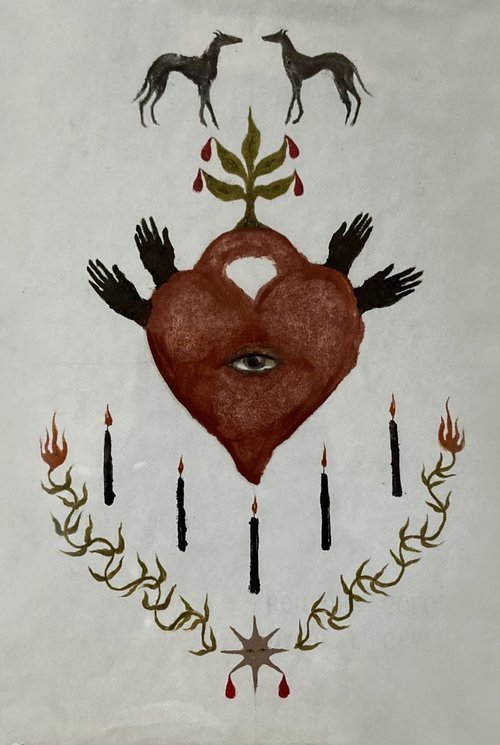
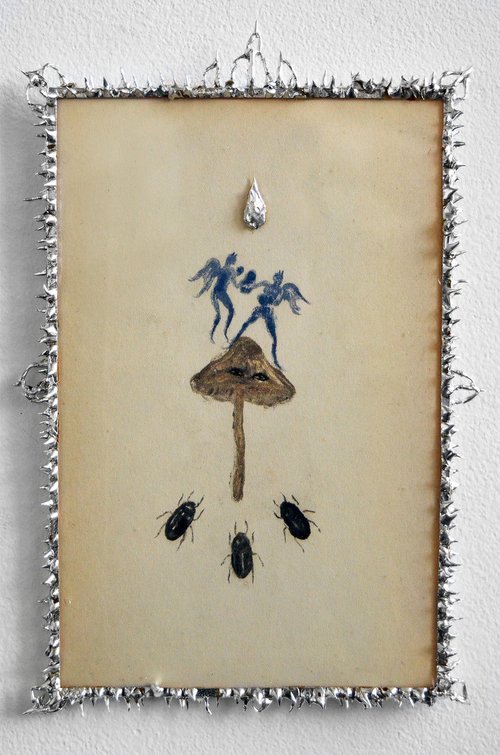
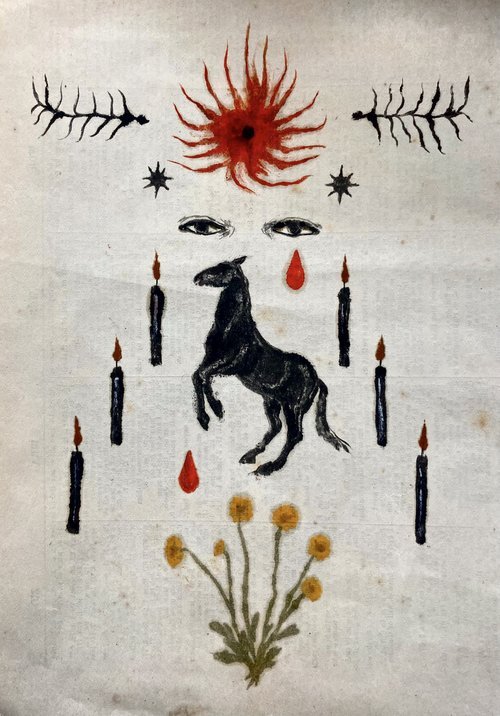
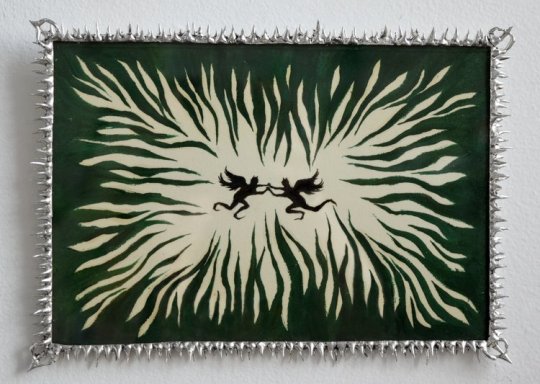
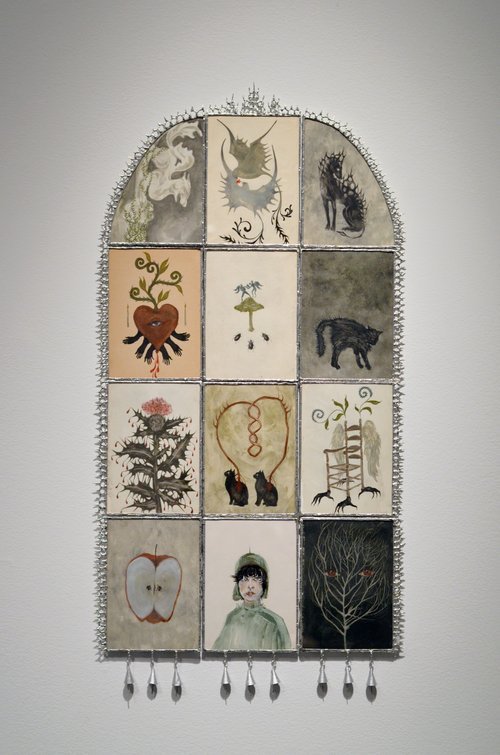
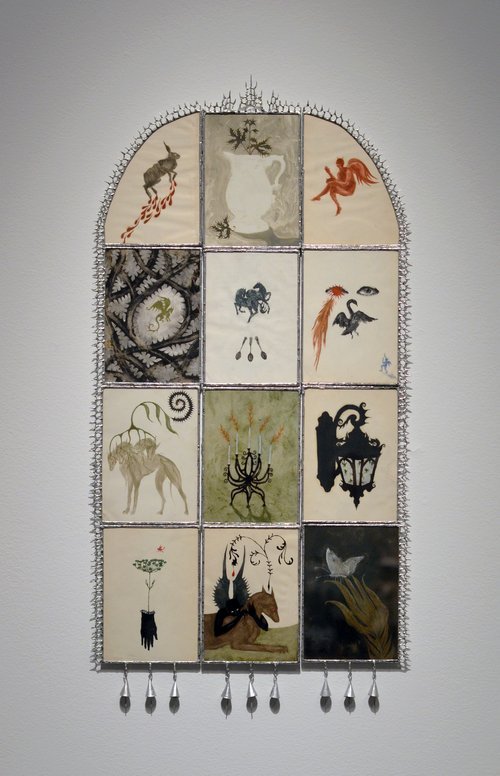
Laura Benson
#artist#illustration#construction#jewellery#art#folk art#mythology#pendant#tapestry#decor#kitsch#drawing
20K notes
·
View notes
Note
I never touched it but I feel like i only ever hear positive things said about song of achilles.. in (rough strokes at least) what makes it dogshit to you?
Okay it's been a while since I actually read it so some of this might not be spot on accurate. Sorry if at any point I say 'the book never does xyz' and it actually does once or twice but I think my underlying criticisms are accurate
-Patroclus is made into like this soft gentle tender quivering little yaoi boy. In the source text, he's shown as compassionate and moved by the suffering of his own men (and apparently having some medical skill, tending to the wounded in the camp), but very much invested n combat and very, very good at it (pages worth of descriptions of the guys he's killing left and right). In this, the arguably more complex character from this 8th century BC text is flattened into Being A Healer, he doesn't want to go to war he just wants to help people, he only goes because Achilles has to but he doesn't want to fight he's a HEALER he's a gentle lover NOT A FIGHTER who just wants to help he just wants to help everyone around him he HEALS while Achilles is a doomed warrior who is so good at fighting and KILLING its a DICHOTOMY GUYS!!!LIKE THE BEAUTIFUL SUN AND MOON DOOMED LOVERS SO SAD patocluse HEALER . (I Think he's specifically characterized as being BAD at fighting but might be misremembering)
-I don't remember much about Achilles' characterization I think it just makes him less of a jackass while not adding anything of interest and levels out into being mad boring.
-Not getting into the literal millenias old debate whether the mythological characters Achilles and Patroclus were being characterized as some type of lover by the original oral sources of the Iliad or its Homeric writers. We will never know. We don't even know what (if any) culturally accepted conventions of male homosexuality existed in bronze age Greece (we know much more about their descendants). But there are some interesting elements of their characterization in this direction, with how unconventional their relationship is WITHIN the text itself- Patroclus is described as cooking for Achilles and his guests (very specifically a woman/wife's job), Achilles chides Patroclus like a father, but there's also scene where Achilles' mourning of him directly echoes a passage of Hector's wife mourning her husband, Patroclus is explicitly stated to Achilles' elder, and is overall treated as his equal or near-equal, closest confidant and most beloved friend (to the point that pederastic classical Greeks would debate over who was erastes (older authority figure lover) and who was eromenos (adolescent 'beloved')- many took it as a given that this text depicted their present-day cultural norms of homosexual behavior but it existed so Outside of these norms that it had to be debated who was who). Their relationship is non-standard both within the text and to the descendants of the civilization that wrote them.
Basically what I'm saying is this book had opportunities to like, explore the unconventionality of the relationship (being presented here as explicitly lovers), explore the dynamics of why Patroclus wants to do 'women's work' (besides being a tenderhearted softboy), the weird dynamics where they take on paternal roles to each other but also roles of wives, how they feel about being this way, and just kind of Doesn't. Which I guess isn't an intrinsic fault (because it omits much of what I just talked about to begin with). it's just like.... Lame. This book takes jsut abandons everything interesting about the source text in favor of flattening it into bland Doomed Yaoi.
-The conflict that sets off the core story of the Iliad is Achilles and Agamemnon fighting over Briseis, an enslaved Trojan woman taken by Achilles as a war-trophy, Achilles spends most of the story moping because he was dishonored by his 'trophy' being taken. Achilles and Patroclus and everyone else are raping their captives, all the women in the story are either captured Trojans (or in the case of the free women within the walls of Troy, soon to be enslaved, and are slave owners themselves). Slavery as an institution and extreme patriarchal conventions are innate to the text and reflective of the context in which it was developed. You cannot avoid it.
But obviously you can't have your soft yaoi boys doing this, so the author has them capturing women to Protect Them from the other men. Their slaves are UNDER THEIR PROTECTION and VERY SAFE (and they might even Like And Befriend Them but I might be misremembering that. Briseis does though). Our heroes have apparently absorbed none of the ideals of the culture they exist in and the author seems to think "they're gay and aren't sexually attracted to their captives" would translate to them being outright benevolent (also as if wartime sexual violence is just about attraction and not part of a wider spectrum of violent acts to dehumanize and brutalize an accepted 'enemy')
In the source text, Briseis mourns Patroclus as being the kindest to her of her captors, who tried to get her a slightly better outcome by getting her married to Achilles (which probably would be the Least Bad of all possible outcomes for a woman in that situation, becoming a legal wife instead of a slave), and wonders what will happen to her now that he's gone. This is a really really sad, horrible, and compelling dynamic which could be fleshed out in very interesting ways but is instead is tossed entirely aside in favor of them being Besties. Like brother and sister.
All of the above pisses me off so much. If you don't want to engage in the icky parts of ancient/bronze age Greece then don't write a retelling of a story taking place in bronze age Greece. I'm not gonna get mad at children's adaptations of Greek myths or silly fun stories loosely based on them for omitting the rape and slavery but it is SO fundamental to the Iliad. If you're not willing to handle it, either fully omit it or better yet set your Iliad inspired yaoi in an invented swords-and-sandals setting where you can have all your heartbreaking tragic doomed lovers plot beats and not have to clumsily write around the women they're brutalizing.
-The author didn't seem to know what to do with Thetis and she made her just like, Achilles bitch mother who spends most of the story trying to separate our Yaoi Boys (iirc her disguising Achilles as a girl and hiding him on Scyros is made to be more about getting him away from Patroclus than trying to save her son from his prophesied doom in the Trojan War) until she sees how much they loooove each other and I think helps Patroclus' spirit get to the afterlife or something in the end?
-This is more of a personal taste gripe but it has that writing style I loathe where the prose feels less like a story and more like an attempt to string together Deep Beautiful Hard Hitting Poetic Lines that will look great as excerpts on booktok (might predate booktok but same vibe). It's all very Pretty and Haunting and Deep but feels devoid of real substance.
I really like The Iliad and The Odyssey in of themselves. They're fascinating historical texts that give a window into how 8th century BC Greeks told their stories, saw their world, interpreted their ancestors, etc. And genuinely I think these texts have 'good' characters, there's a lot of complexity and humanity to it.
WRT the Iliad- all of the main Achaeans are pretty fascinating, the one singular part where Briseis Gets To Talk and laments her situation is great, Achilles fantasizing that all of the Trojans AND the Achaeans die so he and Patroclus alone can have the glory of conquering Troy (wild), Achilles asking to embrace Patroclus' shade and reaching out for him but it's immaterial (and the shade being sucked back underground with a 'squeak' (the squeak kinda gets me it's disturbing and sad)), Hecuba talking about wanting to tear out Achilles' liver and eat it in a (taboo, exceptioally pointed) expression of rage and grief for his mutilation of her son's corpse, just one tiny line where the enslaved women performing ritual wailing for their dead captors are described as using it as an outlet to 'grieve for their own troubles' is heartrending, etc. A lot of grappling with anger and grief and the inevitability of death, a lot of groundwork laid for characters that could be very interesting when expanded upon in the framework of a conventional novel.
And Song Of Achilles really doesn't do much with all that. I know a lot of my gripes here are kind of just "It's different from the Iliad", I would have thought of it as mostly mediocre and forgettable rather than infuriating if it wasn't a retelling (and I DEFINITELY have strong biases here). But I think the ways in which it is different are less just a product of a retelling (of course there's going to be omissions and differences) and more a complete and utter disinterest in vast majority of its own subject matter, to the book's detriment. I think a retelling has a point when it EXPANDS on the source, or provides a NEW ANGLE to the source. This book doesn't Really do either, it just shaves off the complexity of its source material, renders the characters into a really boring archetype of a gay relationship, and gives very little else. Its content boils down to a middling tragic romance that has been inserted into the hollowed out defleshed skeleton of the Iliad.
Bottom line: I definitely would not be as mad about it if I wasn't familiar with the source material but I think it's fair to expect a retelling to Engage with/expand on its source, and I also think it's weak purely on its own merits. This book was set up to disappoint Me specifically.
#Sorry this turned into a 100000 word essay on The Iliad it can't be helped#I read Circe by the same author and thought it was like.. better? Definitely not great just less aggravating and kind of boring#Just rote 'you heard about this villainous woman from a Greek myth... Here's the REAL story' shit#It did have a few things I thought were good I remember it starting kind of strong and then just going limp for the remaining duration#I think part of it is that in that case she's expanding on a figure that Didn't have a whole lot of characterization in the source so#like. She had to actually Expand The Character#Again Silence of the Girls is the only Greek Mythology Retelling I have like....positive?.leaning positive? feelings towards#I've got BIG issues with it too but it does pretty much the exact opposite of everything I'm mad at SOA for and in some very#compelling ways (it's just that the author seems way more interested in Achilles and Patroclus than The Main Character Briseis#to the point of randomly starting to have Achilles POV interjections (which I thought were Good in of themselves but#really really really really really really really didn't need to be there) and then get kind of lampshaded by Briseis narrating 'I guess I#was trapped in Achilles' story the whole time lol!!!!!!')#It undermines the book on both a thematic level and just like. a construction level like it's real sloppy at times.#Also the Briseis POV sometimes has these like really out of place Author Mouthpiece Moments where she's very obviously#Stating The Point to the audience and it's like yeah we get it. We get it.#Wow in the scene were our mostly silent enslaved protagonist removes the gag from the mouth of a dead sacrificed girl as a#small but significant act of defiance and grieving in a book called 'Silence of the Girls' you inserted an ironic repeat of the line#'silence befits a woman'. in italics even. Thanks for that. I could not possibly have grasped the meaning of this scene if you didn't#spell it out for me like that. Thank you.#Actually hang on the only Greek mythology retelling I have unequivocally positive feelings for are the 'Minotaur Forgiving'#songs on 'This One's For The Dancer And This One's For The Dancer's Bouquet'. Fully love it. Like not just as songs I think it#does function well as a narrative and engages with and expands on the source in really beautiful and creative ways
48 notes
·
View notes
Text
Pythonomachia
An Epic Poem in Dactylic Hexameter
Sing gracious muse of the god Pythios who returns to his homeland
Distantly where Helios never sleeps has he dwelt for the winter
See how he conquers the seat of his throne at the navel of Gaea
Thus did the will of Zeus come to passage amongst us mortals
Born upon far flung Delos, see him come to the slopes of Parnassus
Thick and wild was the broad bosomed Earth at the shrine where holy,
Well-counseled Themis proclaimed in the voice of her August Mother,
Things most divinely ordained. There roving the plain was the dragon,
Born of the earth, who rent at the herds of the men who did dwell there.
Such was the terror of Python that no high walled town was constructed,
Nor was the soil torn up by the Ox driven plow into furrows.
There in that place did the young god come to the cave of the maidens
Who by the will of Zeus Klarios do speak of the future
After the lots were consulted the Lord Loxias did declare thus
“Such is the will of Zeus most high that I build here an Oracle,
Thus may the mortals increase and prosper by grace of the great gods”
So did Apollon set forth from the cave to drive out the great dragon.
Lo he appeared by the snake and beheld his clear eyes filled with malice
“Drake, I dismiss you from this holy place by will of the lord Zeus,
Frighten no more the mortals that dwell here, so speaks Apollon”
“Nay,” said the snake “I dwell here by right of my dread mother Gaea,
Love ye the mortals so much that you’d seal them forever behind walls?”
Deftly the claws of the dragon did rend the pure flesh of the young god,
Spilling his Ichor upon thirsty earth, unknotting his fine limbs.
Thusly the spirit of lord Apollon did pass down to Hades
Yet, o'er long Asphodel’s fields did he hear a clear voice that did ring out
“Strike the Drum, blow the Aulos, make the noise of lord Bromios, all you kin of Korykia,
See young phoibos calls our aid, that the will of the lord Zeus might be done on the earth.
Bring together all the people to great Delphi and bind them as one with the law
I will keep your holy temple when the days pass into shadow and the snow cloaks lady Gaia
Now awake my lordly brother, and expel the son of earth our greatest mother
that the people might know the wise will of the Twice-Born son of Zeus”
Then did the god awake on the grass in the shade of Parnassus
Far-shooting Lord Apollon, son of Leto, did pull back his bow string,
Loosing an arrow to fly to the heart of the great dragon Python
Thus did he lay his claim to the most holy temple of Delphi
Greatly the august priestess did wail for the loss of her brother
Thick were her tears on the earth at the unending passage of ages
“Godling” she cried, “you must now atone for your crime against Themis,
Murder of kin must be cleansed by the grace of the holy Theoi
Go, purify yourself in the deep clear River Pineios,
Then might the law be made to be whole in this place most sacred”
So did the lord Apollon go to bathe in the cleansing waters.
After these things did he set to the task of constructing his temple
Phoibos Apollon did gather the daughters of Well-Counseled Themis
“Horae”, he cried, “go forth from this place and declare to the people,
Till the earth and build great walls by the grace Pythios gives.”
Thus did the laurel begin to bloom at the temple of Delphi.
#I wrote this a few months ago for the theophania but never posted it anywhere#it won a poetry contest in a helpol discord server i'm in though#hellenic pagan#hellenic polytheism#helpol#paganblr#tagamemnon#homeric epics#greek mythology#poetry#poems and poetry#original poem#constructive critism welcome
7 notes
·
View notes
Text
Gender Fluidity, non-heterosexual, and gender variance behavior in mythology.
For the purpose of this thread, and keeping it short cuz even though this is my off month to finally rest from burn out, I've got publishing obligations, signings, and stuff to do -- we're keeping-- this to South Asian mythology:
I've already done a thread about third sex/intersex and trans (Hijra) in South Asian culture and the portrayals in a pop culture IP recently - Monkey Man by Dev Patel --
This is a short primer really:
Harihara - the union representing totality/oneness of all existence is the being born of the union of Shiva and Vishnu (who at prior to this morphs into Mohini, the female celestial temptress who Shiva becomes besotted with and tries to get intimate with), Vishnu changes back amidst this and the two fuse into a being. The ability of celestial beings | gods | goddesses to morph, change shape and gender in Vedic to Hindu mythology is well-established/normal. But there are many legends about Mohini, including the birth of her (Vishnu, his female avatar form being Mohini) son, Shasta, with Shiva. Mohini is also known as a femme fatale archetype, seducer, temptress, as well as someone known for destroying/seducing demons to their doom.
One thing to remember is that the Vedic religion and its stories are old, older than our records because the stories, songs, poetry of it all existed before written records and were transmitted orally. There are also varied versions of the epics, such as Tamil recountings of Mahabharata for example, in where one such example exists.
Krishna also takes the form of Mohini to marry Aravan (in Tamil) Iravan otherwise to give Aravan the chance to experience love before his death. There is a festival celebrated to this in the month of Chitrai (April/May) at the Koothandavar Temple dedicated to Iravan during which, Hijras (the third sex, transgender, intersex, and or eunuchs as well) celebrate Krishna/Mohini marrying Aravan and then mourn Aravan/Iravan's death as he sacrificed himself.
It must be noted that there is artwork and mention throughout the wide spread of Vedic upwards stories (and how many interpretations, takes, and varies stories there are) of same sex and yonic/non-vaginal sex relationships, births, and more.
There's also inter-being...?


Erotica/romance authors help me out here? Inter...celestial sex?
Apsara, devas, asura, humans, demigods. Look, lots of sex of all kind happens, and it's normal.
There's also the story of Arjuna to consider: when he refuses the seductive advances of Urvashi, she curses him to be a Klba, or member of the third gender. Later when Arjuna adopts the name of Brihannala, the curse takes effect as Arjuna dresses in women's clothing, and because of this, Arjuna is able to gain entrance to the kingdom of Virata in the Padma Purana and teach the high arts of music, singing, and dance, to the king's daughter and princess. Later, he is turned into a woman when he wishes to take part in Krishna's mystical dance which only women may attend.
Then there is Ila, a character cursed by Shiva and Parvati to change genders each month.
NOTE: there are MANY versions of the story of Ila, but it is canonical they changed gender -- known as Sudyumna as a woman, and Ila as a man.
Ilā is considered the chief progenitor of the Lunar dynasty of Indian kings – also known as the Aillas.
Continuing. In one story, Ila marries Budha (not Buddha the former king and founder of Buddhism), but Budha that is the god Mercury -- Budha is aware of Ila's origins as a man and changing status, but only marries Ila in his feminine state, and honoring that part of them as his wife and only when Ila is in that state. He does not enlighten Ila to the changing effect as each gender is unaware of the other and those lives.
The tale of Ila's transformations is told in the Puranas as well as the Indian epic poems, the Ramayana and the Mahabharata.
This is just a little thread. Anyways, I'm off now to sign nearly 2000 pages (won't finish today) and have an achey hand while I do more research and trying to improve the prose style I want for book three of Tales of Tremaine.
❤️ thank you. Remember, be kind.
#gender fluid#gender variance#genderfluid#south asian mythos#south asian mythology#third sex#intersex#gender is a social construct#gender in lore#epic poems#ramayana#mahabharata#trans representation#transgender#sudyama and Ila#pride month#trans pride#thanks for coming to my ted talk#monkey man#gods and goddesses#hindu gods#hindu mythology#vedic gods
29 notes
·
View notes
Text
Word of the Day - Wednesday 26. 3. 2025
Skéra ; skérar /skɛɪ̯.rɑ/ [s̠kɛɪ̯rɑ] ; /skɛɪ̯.rɑr/ [s̠kɛɪ̯rɑr̥]
noun, feminine ; verb, intransitive
Death ; to die
Okay so this one's gonna be a little more lore-heavy, especially for that example sentence.
Skéra is the word for death, and it's also where one of the Kolic goddesses - Skérjun - gets her name. You might notice the diminutive suffix -jun, so you might have already figured out that "Skérjun" means something like "little death." She is the goddess of death, who is bound to never leave the underworld, to which she's fallen when she died with her human lover. (I am writing a song about that btw, but it's taking years). Aside from being the goddess of death, she's also the goddess of fate (which is connected to her role as death), and also the goddess of adults who never had their rite of passage ritual, and are therefore still referred to in the diminutive gender.
Example sentence(s):
Skéraei frogg, júrm ána arfa hjölfrära äða gyða veiðaenjä prënrina. Þýtti ääni ärfi pórära äða fíði þýttin kaevrijä äða hjakkjä. Nae gerð án, eir þúðvu ärfir. Eir tannu hjölfrjä Skérjänjä, týðrjunaen Firrän.
translation: When a person dies, their blood disperses through the earth and becomes food for worms. Their breath disperses through the sea and gives breath to the waves and wind. But their wit, it can't dispers. It goes to Skerjun's realm, like a letter from Firra.
lit. translation: Dies-when person, blood hers spreads earth-through and comes food-as-to worms-for. Breath hers spreads sea-through and gives breath waves-to and wind-to. But wit hers, it cannot spread. It goes earth Skerjun's-to , writing_tablet-as Firra-from.
This is so long, writing a gloss will be such a pain, but lemme try:
die-F.ATEM=WHEN person, blood 3SG.F.GEN spread-F.ATEM earth-PERL and come-F.ATEM food-ESS.LAT worm-PL.BEN. breath 3SG.F.GEN spread-M.ATEM sea-PERL and give-M.ATEM breath-GEN wave-PL.LAT and wind-LAT. but wit 3SG.F.GEN, 3SG.N can<NEG>-N.ATEM spread-INF. 3SG.N go-N.ATEM earth-LAT Skérjun-POSS-LAT, writing_tablet-ESS Firra-ABL.
Whew! That was a lot.
To give some explanation as to what this sentence means:
The Kolic religion considers three essential elements of which every earthly thing is composed.
First, is a physical form, which they call, through a metaphor, "júrm" (meaning "blood"). Everything material has a physical form, be it people, animals, plants, water, rocks, etc. Note that the air is not usually considered to have a physical form.
Then there's a so-called "lifeforce," which the Kolic call "þýtti" meaning "breath." Everything which moves on its own has a lifeforce, so that includes people and animals, but also plants, since they grow, and waves, the wind, and even the ground during an earthquake. This also shows that lifeforce is fluid - one moment a rock can be totally lifeless, but the next moment, it might be overflowing with wild, unbound lifeforce. The lifeforce in humans, animals and plants doesn't leave until they die, but there's plenty of free lifeforce flowing through the world, causing movement, disasters, and even some supernatural phenomena.
And the third element is the soul, which the Kolic call "gerð" meaning "wit." Of the material world, it is only possessed by people and animals. It is characterised by the ability to make conscious decisions. In the Kolic worldview, the soul is, unlike any of the other elements, inherently individual and cannot become part of anything else, or be scattered. Therefore, after a person dies, it is the only part of them that survives, and goes live in Skérjun's underworld.
#there we go i finally made a WotW that has some interesting info in it#this one took me such a long time but it was worth it#oh also#i am starting to implement a dictionary section on my reference grammar#It's not public yet but I am slowly starting to get it to work so i'll publish it once it's ready#and it is going to be hosted on the same site as everything else after all#i found out how to do that using Liquid and yml files#conlang#constructed language#kolic#kvils kólän#lexicon#vocabulary#word of the week#worldbuilding#mythology#oh and i also made a Viil reference grammar site but it's not quite ready to be published yet. But I'm working on it!
6 notes
·
View notes
Text

Kinda finished it? I have absolutely no understanding of shading or perspective. Nor have I ever tried it before, did that stop me from trying? It should have. I still think it's pretty decent for a first complex drawing.
Apart from the quality, I've hidden quite a few references to Athena's mythology, let's see if you guys can find them! I'll also let you figure out what's going on as well.
#artists on tumblr#hellenic polytheism#mythology#athena#constructive criticism welcome#first complex work
7 notes
·
View notes
Text
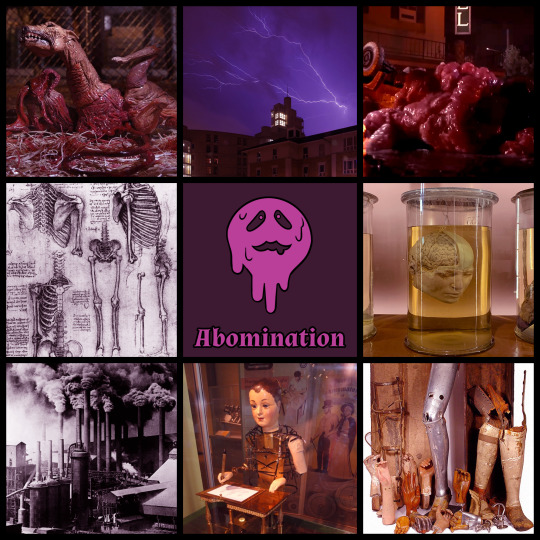
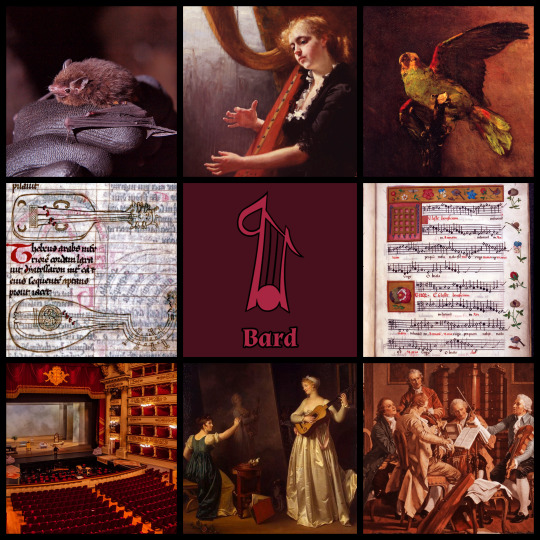
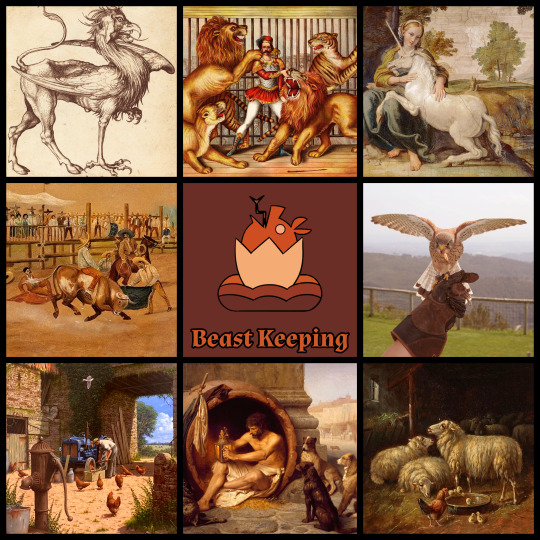
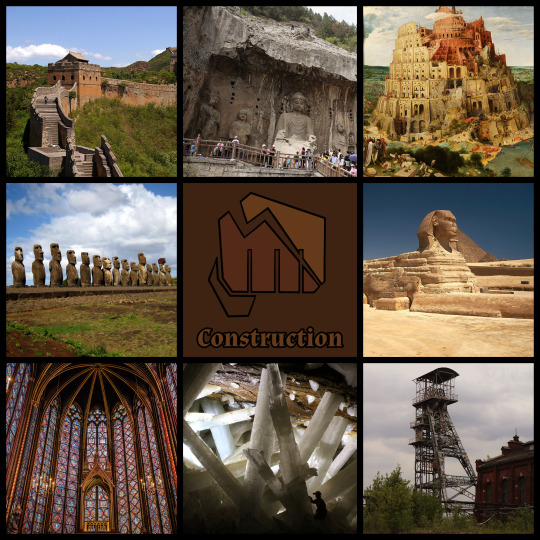
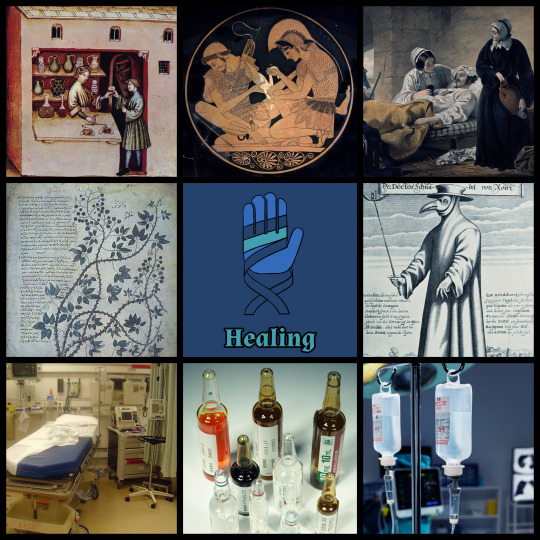
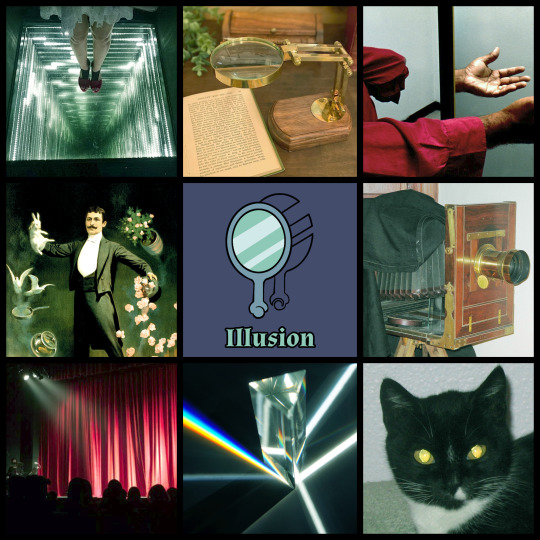
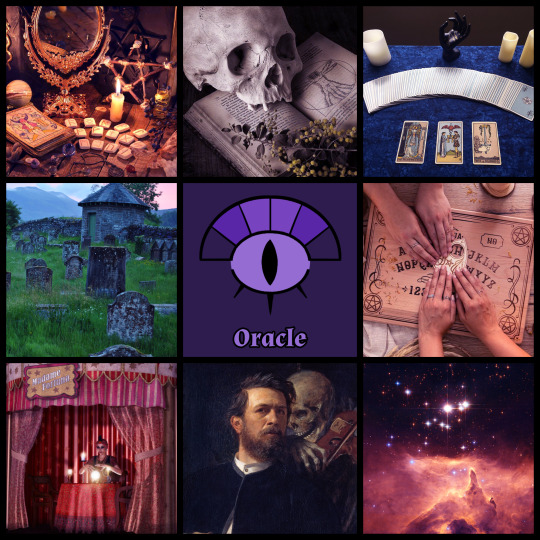
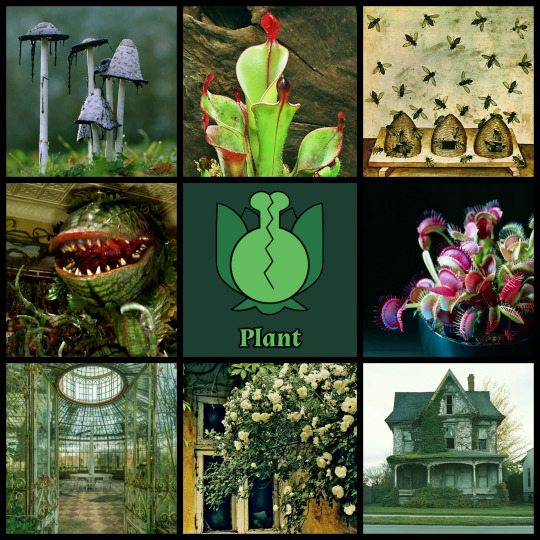
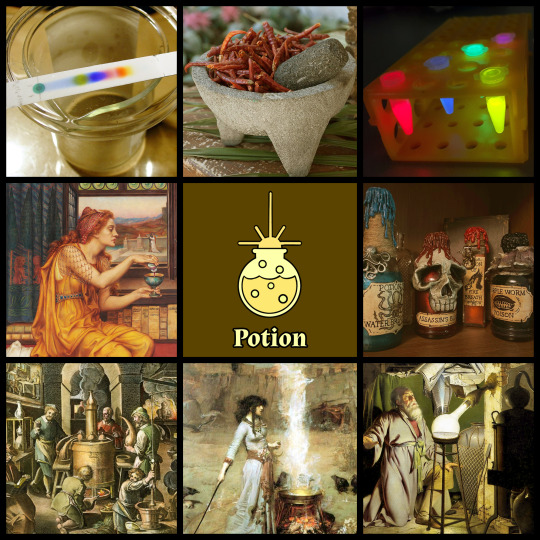
Owl House Coven Moodboards
Reupload because I switched up some of the photos and changed the colour filters a bit
#the abomination board was the hardest to make#had to sift through so much nightmaee fuel last night#toh#owl house#the owl house#coven#witch#witches#magic#disney#abomination#beast keeping#mythology#bard#musician#construction#architecture#healing#illusion#magician#oracle#astrology#occult#plant#plants#botany#potion#elixir#alchemy#moodboard
5 notes
·
View notes
Text
No because I actually love characters that are so disgustingly and horribly human. Like, yes, be flawed, be deep, be something that causes discussion and argument. I hate when characters are flat and perfect and so awesome in every way. Like stop, what makes more ripples in the water? The tiny smooth pebble or the fucked up weird big ass rock?
#please give them dimension#like Achilles#a character that both has moments of heroism and moments of pure horridness#he really is a perfect construct#a display of man’s violence and strength#but I’m not a writer or a poet or any of that shit I’m a science girlie#greek mythology#tagamemnon#ancient greek#achilles#writing#character creation
22 notes
·
View notes
Text

Lute was made to believe that true angels are fixed; perfect by design, immutable in purpose, sacred through stability. In her mind, they do not bend, shift or hunger & anything that deviates from that imagined rigidity [ from order & function ] is lesser, corrupted & a flaw in the system. But in reality, they are anything but fixed: in JW doctrine, angels have abandoned their posts, altered their forms, acted on want; they have chosen, & in that choosing, they revealed themselves to be mutable, capable of failure, feeling & fracture. Lute knows this has happened; she was built from this very knowledge, weaponized to erase it, & yet, she still holds angels to a standard they’ve already broken. Perhaps because if they are capable of committing such errors, then so is she — & that terrifies her. To believe they were always meant to be unshakable is safer than confronting the truth: holiness is not immunity to ruin, only proximity to order; function was never purity, obedience does not mean perfection. If angels are not fixed [ if even they can fall ] then what does she become when she stops pretending to be exact? When she stops pretending that her devotion to Adam is just obedience, versus not the only thing anchoring her to function?
#[ my interpretation of Lute’s framework is supposed to be a commentary on how religions tend to mythologize their own scriptures; clinging-#-to ideals of perfection while overlooking the contradictions that make their figures human + her own hypocrisy because even silent-#deviation is /still/ deviation & she knows it. but she rationalizes it because she was made from sanctified bone ( mortal source ) & she-#-was constructed clinically not 'created' - as if her own origin grants her exemption; as if it absolves her 'faults' when they aren't-#-even faults to begin with ]#✧ [ about ] character foundation
2 notes
·
View notes
Text
Okay so I was sitting in my room scrolling through tumblr, when I got this thought. So basically in the original timeline both sub zero’s were actually born in America but got taken away by their father. Heck in some sources it even said that they had a sister both from the mythologies game and conquest but that never utilized. So, hear me out, what if, while Kuai liang is on the run from the Lin kuei (you know because of the cyber initiative) he decides to go to America to hide out and maybe search for the other earth realm fighters like Johnny or Sonya. But on the way he gets ambush by the black dragon and is left dead in an ally way until, a random woman comes and takes him into her home to heal him up. When he wakes up the woman introduces herself as Lisa and offers him to stay with her until he’s back on his feet. Kuai agrees but as the days go by he starts to notice little things. Like how she gives off a fridges temperature or how she looks very similar to him. He even notices it in her daughter (yes she has a daughter) who happens to have palish skin and light blue natural hair. And let’s just say he saw an old picture of her and her mom…and her two missing brothers… and a man you looks exactly like his father. He puts two and two together and realizes that this is his long loss sister. After a tearful reunion, he realized both her and her daughter also have ice powers (if you couldn’t tell the daughter is frost) but they keep them hidden to hide from the black dragon. It turns out they basically taken over the entire city they live in and constantly threaten the people living there. So what does a assassin, who on the run, with endless free time and just find out his sister and niece are constantly terrorizing but a bunch of gang members, supposed to do. Become a vigilante obviously. Yeah the vigilante part is actually inspired by the mortal kombat vs dc sub zero ending where he basically becomes Batman. It be like that except he doesn’t hold back. Heck you could have him team up with some black dragon defectors like Kabal and Erron or let him meet up with Kenshi who also trying to take it down( this wouldn’t be a one for one of the original timeline more like a mishmash of all the timelines). You can even let him train Lisa and frost and they can fight along side him. You can even bring Hanzo and Bi Han into the mix him Habdo oath to protect Kuai liang as a way to redeem himself for killing his brother and bi Han as a vengeful wraith who seek to finish Hanzo off but also protect Kuai from both the black dragon and scorpion not knowing he protecting him. Bi Han could also regain his humanity with reuniting with his sister who unlike Kuai he remembers(Kuai would be the youngest in this au. And what will I call this au… Urban Sub Zero. Or something else I can workshop. Or maybe I’ll completely forget about this, who knows.
#mortal kombat#kuai liang#lisa liang#mk frost#mortal kombat conquest#Mortal kombat: Mythologies#mortal kombat vs dc universe#Urban Sub Zero au#…..Frozen streets au#…..Ice blocks au#If you couldn’t tell this is my first time writing out an au or really posting anything on tumblr to be honest.#Please send advice constructive criticism or concept ideas for this au it would be greatly appreciated#my au#mortal kombat au#au
13 notes
·
View notes
Note
Do we have ANY actual information about what the Mycenaean, Minoan, or any other pre-Hellenic deities would have been like?
I constantly see misinformation being spread about them, from "Mycenaean Poseidon is Hades" to "Ariadne was originally a Minoan goddess," etc.
In my opinion, the existing research is about Mycenaean religion, not Mycenaean mythology, because we only have the names of the gods and the offerings to them. The only certain conclusion is that the names of some of the gods in Greek mythology have local origins. Names about Demeter, Kore, Hades, Ariadne have not be found in the Mycenaean religion. It's hard to believe any conclusions from so Insufficient information.
What bothers me is what is the point of people spreading information, since they can't help much on understanding Hades and Ariadne in thousands of years after Mycenae?
Recommend: The New Documents in Mycenaean Greek by John Killen
#thanks for the question#sorry for my opinion be too negative as I think constructing pre-Greek mythology isn't interesting…
4 notes
·
View notes
Text
So i'm in the early stages of this new conlang idea, where I essentially build a language from the ground up on the assumption that it is being invented over the course of a conversation between two deific beings at the begining of a new universe. They subconsciously know all concepts that ever where and can ever be, but they can't consciously concieve of a given concept until they've given it a name.
18 notes
·
View notes
Text
Fern's (new) introduction to the Gleaming Grove
The Gleaming Grove is the name I use for my personal pantheon. It is a mix of historical, unrecorded, and constructed deities that I have been honouring for a little over a year now. Some of these deities have been in my life for quite a bit longer, some even right from the start.
Through personal interactions with these deities I have gotten to know them beyond what is historically known. This is called UPG, or Unverified Personal Gnosis. So please, keep in mind that these are my personal interpretations of these deities. Also, as I walk this path and learn more about myself and about these deities, the pantheon might change.
Now, allow me to introduce you.
Cernunnos: Horned Hunter – historical and unrecorded Gaulish deity of the forest, of animals and the hunt. He is the leader of the Wild Hunt and the King of the Fae. He is the god of the liminal, the in between. The cycles of nature – death, decay, and life again.
Nehalennia: Wildmother – historical Dutch deity of nature, the sea, harvest. She guides travelers over sea, guiding them with her stars, or with profitable winds. She is the tempest and the storm, but also the cooling breeze on a hot day. She is the deity of agriculture, especially orchards. Her travel over the sea also includes being a psycho-pomp, guiding those who have passed to their afterlife.
Baduhenna: Rootwoman – historical Dutch deity of the forest, magic, and war. They protect the sacred places and fight against any who wishes to take it away. Protects the oppressed and gives them the tools and power to fight against their oppressors, in both weapons and magic.
Elen of the Ways: Wayfarer – historical or constructed deity of roads and pathways, of journeys both physical and spiritual. She guides us with her lit lantern when we are lost. Labyrinths are dedicated to her, especially as a way to travel inward. She protects us when we travel and nudges us in the right direction of where we need to be. An antlered deity carrying a lantern and surrounded by green.
Nemetona: Sanctuary – historical Gaulish deity of sacred spaces. Protector of boundaries. Both the sacred spaces we creating when practicing witchcraft, as the sacred spaces that are our home and our personal boundaries.
Avalon - Lady of Avalon. Goddess of healing, magic, apples, and harvest. Queen of the Fae, keeper and protector of magic.
Hearthlight – unrecorded and constructed deity of home, hearth, and community. Protects the home and hearth, provides and guards warmth and love in the home. Connections and community. Sharing what you have and taking what you need. Perhaps a mantle shared between different deities
Loki: Trickster – historical Norse deity of mischief, change, laughter. God of the outcasts, challenges societal norms and brings necessary change.
Venaris: Lady of Flowers – unrecorded deity of spring, of flowers, love, joy, mirth, and art. Beauty, music, poetry and inspiration. She invites us to dance to the tune of the seasons, to stop and smell the roses, and see the small wonders around us. Is related to Eostre/Ostra and Meda
Liyesa: The Iridescent One – historical and constructed deity of beauty, self love and -acceptance, freedom. She teaches us there is beauty in all of us, and helps us learn to love and accept ourselves as we are. Breaker of Chains, she guides us to break free of the chains society and our own perfectionism throw around us. She grants us second chances should we need them.
Holle: the Veiled Silence – constructed and historical Dutch deity of silence, of winter and of secrets. She is the silence of snowfall. She urges us into contemplation and introspection, and what secrets mean and how to keep them.
Arawn - historical Welsh deity of the Underworld, the wild hunt, loyalty, and honour. King of the Fae and Lord of the Dead. Also called Gwyn.
Ashka: Ashkeeper – unrecorded deity of the dead, graveyards, and memories. Gathers and keeps the memories we have of those who have passed. Keeps the ‘souls’ safe until they are ready to continue to wherever they choose their afterlife to be.
the Morrigan: Crowmother – historical Irish deity of war, magic, and sovereignty. She is connected to Baduhenna both through historical sources and my own interaction with both.
Mona: Moonmother – historical deity of the Moon, magic, the night. Bringer of change and moving through cycles. Mother/sister to Starsister. Void created the stars, Herta (the Earth) and the moon. We gave them life in the form of divinity. Moon came first, and she inspired humans to give her a sister/daughter.
Stēra: Stardancer – unrecorded deity of the stars and the night sky, of navigation and of hope. A light in the dark, a guide to lead us home. She dances across the sky, leaving a trail of stars behind.
Herta/Arda: Greenmother – historical Dutch deity of the Earth, nature, growth, and harvest. Her day was called “Hartjesdag” or “Heart’s Day” and was a day for collecting magical herbs to bless the home.
Gahella: Void/Creation – The emptiness from which anything can be created (chaos in Latin) The depth of space. The Divine Chaosyne. Void is the emptiness that was here before the big bang. The void from which creation springs forth. They are the darkness between the stars that birth the galaxies and starfields. Chaos is needed to keep things from getting stagnant, and is the catalyst for change.
Werda: Wordweaver – unrecorded deity of words, stories, magic. Muse of writing. They spark the inspirational spark and guide the words on paper. They are the keepers of knowledge, both mundane and magical.
Lycke: Lotweaver – unrecorded deity of fate, luck, and the tapestry of life. They weave the threads of life, guide and watch over them. Fate is not set in stone, choices and such will always have an influence on the tapestry.
Klaithe: Craftweaver – unrecorded deity of creativity, artistry, and artisans. The joy of creation for the sake of creation. The inspirational spark that is within all of us. The need to express our true selves in our own ways.
Spirits honoured in my practice: the Good Neighbours, Alven, Merfolk, Dragon, Unicorn. My ancestors of blood and bone, land, heart, spirit, and craft. The spirit of Wolf and Crow.
[Updated March 9 2024]
#deity#personal pantheon#gleaming grove#unrecorded gods#constructed pantheon#constructed gods#gaulpol#dutch mythology#dutch deities#long post#fern's practice
34 notes
·
View notes
Text
euridyce held no fear
as she peered into orpheus’ eyes once more
a final time set in stone
all this disruption caused for nothing
forced to give up the love they’d been chasing
nothing but remorse for what had been done
swallowed whole by their hearts breaking
#writing#constructive criticism welcome#poetry#poetry tips#greek mythology textpost#greek mythology#orpheus and eurydice poetry#eurydice#orpheus and eurydice#orpheus
15 notes
·
View notes
Text
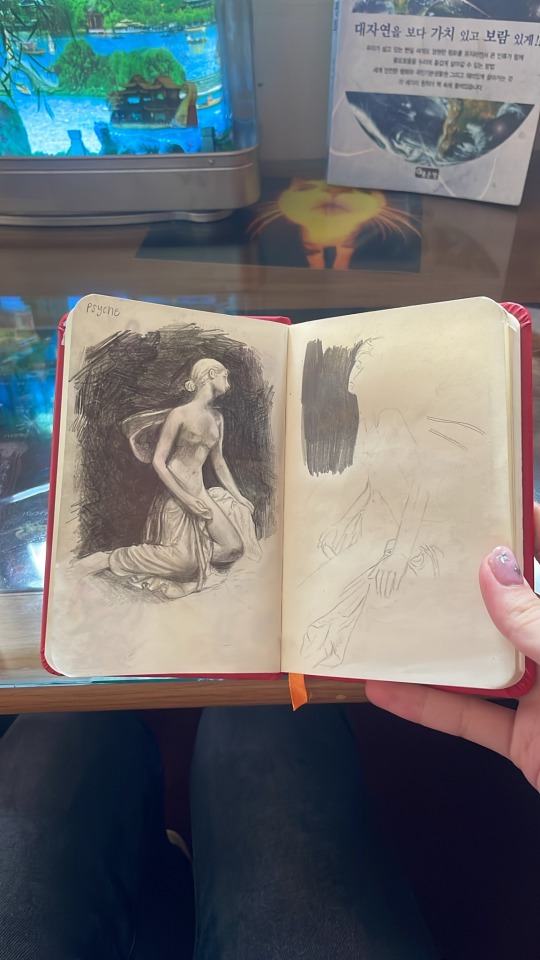
little sketch I’ve been working on
#greek tumblr#greek mythology#greek myth art#my art#if you can call it that#I’m Econs & data science major so not taking any constructive criticisms#sketch#art#sketchbook
2 notes
·
View notes
Text

In-progress of an Athena drawing! Spent around 4 hours on it. So far the most effort I've put into an art piece and I definitely want to finish it.
#hellenic polytheism#athena#artists on tumblr#digital art#mythology#clothes are hard#in progress#first post#art wip#constructive critism welcome
3 notes
·
View notes